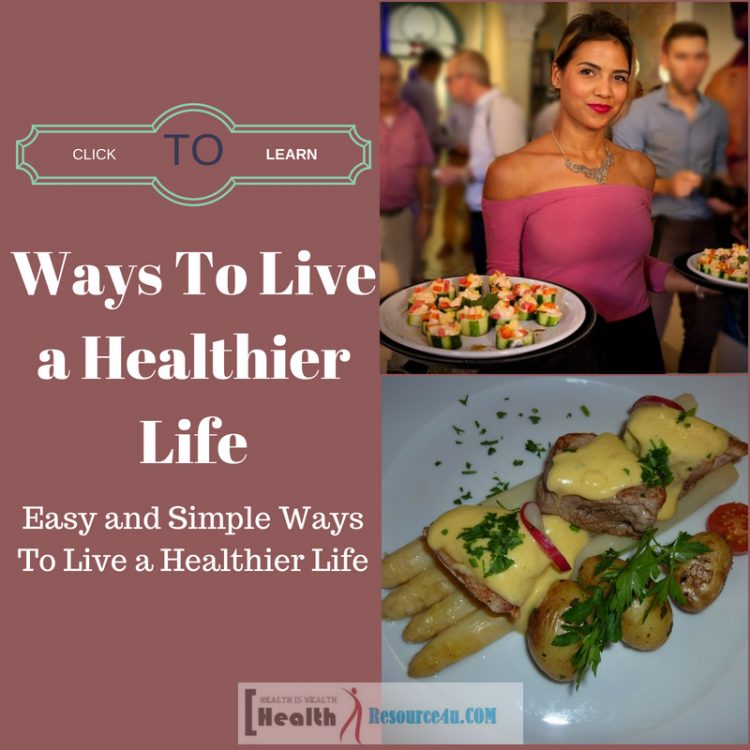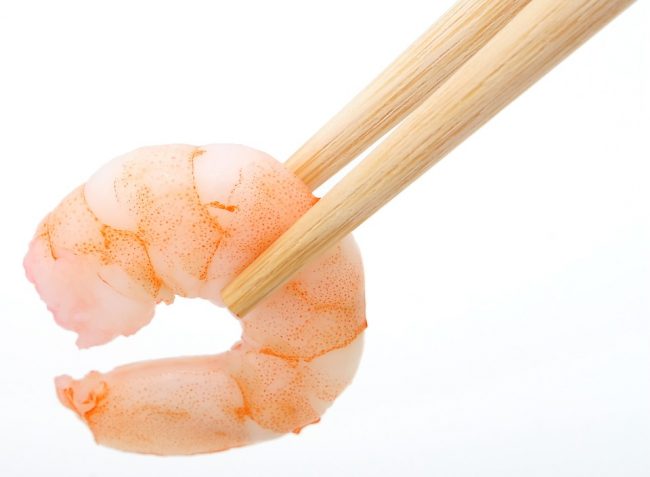Healthy living is not just a trend; it’s a way of life. It is also a long-term commitment, not a passing fad. Several steps can be taken to make your present and future healthier. Here’s the checklist you need to live a healthy life.
Easy Steps To Living a Healthier Life
#1 Take Stock of Your Situation
The first step towards healthy living is to get a handle on the status of your health. To assess how healthy you are, the first thing you need to do is make an appointment with your dentist and your doctor. Also, catch up on routine immunizations and screenings and take any questions the doctor may have.
Gauge the girth of your stomach next. Measure the weight and the height to check the BMI and measure the waist circumference to see if you are overweight and if your waistline is approaching epic proportions. It is also important to record how much physical activity s experienced during the day and how intense the activity is. How varied is your workout routine and what is the extent of your level of involvement and engagement in it? The Center for Disease Control/CDC holds that adults need at least 2.5 hours of moderate-intensity aerobic activity per week or 15 minutes of high-intensity aerobic activity and muscle strengthening at least twice per week.
Another good way to keep track of what your current status of health is involved in writing down everything eaten for the day and not skipping items one is embarrassed about.
An area you should also check up on is your mood and energy. Healthy living should incorporate emotional wellness as well as adequate rest. Check how your mood has been lately and the extent to which you have experienced symptoms of anxiety or depression. Also, check if you are getting a minimum of 7-8 hours of sleep per night or not.
Finally, consider your social network. Study the strength of your connections with friends and family. Check if you are plugged in with social and spiritual groups that enrich life. There is an urgent need for positive and lasting relationships.
#2 Organize Yourself
Get rid of all the items you can do without or things that are just not good for you. It could be that secret stash of doughnuts in the fridge or processed junk foods that contain sugar, unhealthy oils and white flour.
#3 Take Supplements
Take supplements such as Omega 3, magnesium, zinc and iron. Each of these supplements has health benefits. For example, Omega 3 fatty acids found in fish, walnuts, and flaxseed are perfect for improving skin health, fending off stress and reducing bodily inflammation.
#4 Address Eating Problems
Emotional eating occurs when one eats to counter a mood or an emotion rather than feeling hunger. For instance, you may choose to eat more when you are stressed out, frustrated or unhappy? Another trigger for emotional food habits can be blocked at work. Emotional eating will never leave you feeling happy as you try to compensate in a way that has no relation to food. Remember that food is not the cure for love and happiness deficits in your life. Address this issue before it spirals out of control.
#5 Eat Smaller Meals

#6 Avoid Trigger Foods
Trigger foods can be the reason for binge eating. Your trigger foods may be different from someone else’s but the chances are high that it will be stuff like pastries, crisps, and donuts. Trigger foods are processed and junk foods like candy, chocolates, cookies, confectionery, chips or anything with a high degree of refined sugars, flour, and sodium. These foods can further trigger hypertension and it is important to move them from the diet.
#7 Eat Reasonable Portions
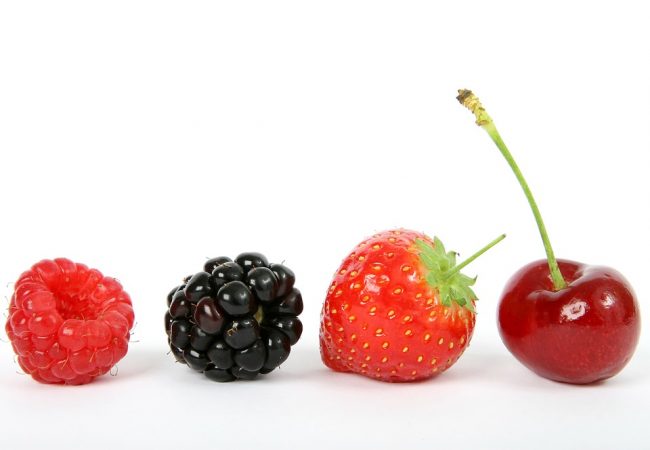
#8 Cut Down on Excessively Fried Foods
Deep fried or processed food items are rich in acrylamide which is a potential carcinogen. As per a report by BBC, ordinary bags of chips contain five hundred times the substances permitted in drinking water by the WHO. When you consume oily food, you will feel sluggish. Instead, opt for food that is healthier such as raw food, steamed, lightly or stir fried or even grilled. Lower the intake of junk foods like chips, wedges, doughnuts, and fries.
#9 Leave Out Sugar-Filled Drinks and Foods
Sugary foods include pastries, chocolates, candy bars, cookies jelly doughnuts, and cakes. These trigger an eating binge on account of the rush of sugar. Eating these once in a blue moon is fine, but eating them with alarming regularity can have severe repercussions for your health. Choose healthy snacks instead.
Don’t go for a fizzy soda or sugary drinks either. Remember that soda being stimulants that are artificial leading to weight gain. Opt for water, veggie juices, green tea instead and keep your body healthy.
#10 Avoid Alcohol
Caffeine and alcohol are diuretics, but there’s a reason alcohol is worse than coffee. Alcohol repeatedly impacts the body and the health negatively. Alcohol impacts the effective functioning of the liver, lungs, brain and other organs. If alcohol has been drunk regularly, it’s essential to lessen if not eliminate it completely.
#11 Watch Out the Glycemic Load and/or Index
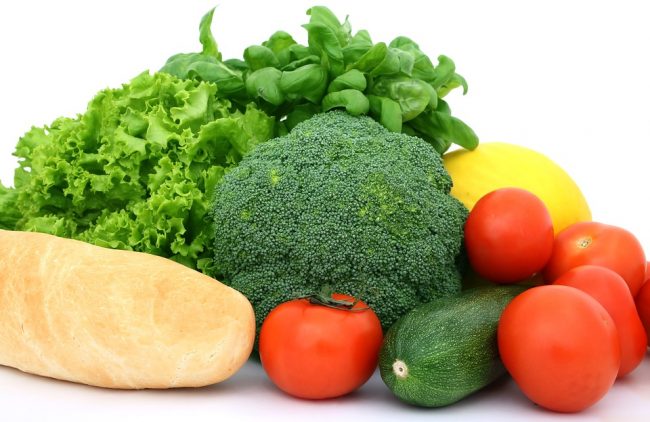
Fruits may have high glycemic index but low glycemic loads for the amount generally taken. Watermelon has a GI of 80. But a single watermelon serving has such fewer carbs of around fiveto six grams that glycemic load is roughly the same. Eating goods with glycemic index but in massive quantities can have an adverse effect on health. Macaroni has a a GI amounting to 50, but a massive serving of 180 to 250 grams leads glycemic loads of 24. Lower the food’s glycemic load by combining it with protein and fats.
#12 Opt for Organic Foods
Organic food is produced sans synthetic inputs like chemical fertilizers and pesticides. Additionally, these are not made with GMO foods, and not processed with additives, chemicals, solvents or harmful irradiation. More supermarkets offer organic alternatives. Organic foods are more expensive but the truth of the matter is they yield better health.
#13 Prepare Your Own Meals
Whenever possible, your own meals should be prepared. When you make your own meal, you are aware of what constitutes it. The choice becomes easier rather than opting for less than optimal options in restaurants. Choose quality and awesome kitchen equipment and the best tools such as blenders and ovens for baking and juicing healthy foods.
#14 Learn When To Refuse
On account of being with friends and being offered food, you need to put a stop to it. Say no when you need to and don’t eat if you don’t feel hungry. Eat exactly what is required. It is better to consume less and in line with energy needs rather than eatin too much and work off excessive calorific intake via exercise. When one eats too much, the digestive system undergoes a strain. Similarly, if exercise is excessive, the body is strained.
#15 Give Up On Smoking
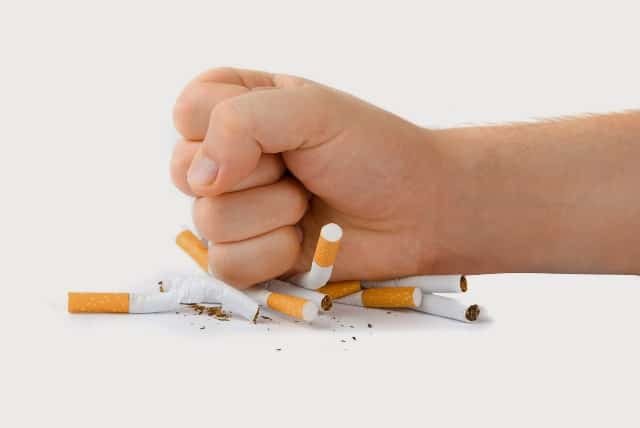
#16 Eat Healthy & Nutritious Snacks
If you feel famished at work, eat snacks which are nutritious such as fruits, yogurts, veggies, and juices. These are high in nutrition and don’t exacerbate the sugar rush. Be ready with these so you can munch when you feel like it and have enough to satiate yourself. Avoid candy bars and cookies.
#17 Eat Healthy Veggies
Vegetables are teeming with minerals and vitamins that keep a person energized and healthy. So make sure you take at least 5 servings of vegetables in one day.
#18 Make Juice By Blending
Don’t opt for artificial juices. Instead, make juice by blending to get the right vitamins and other nutrients. Juicing refers to when the juice is extracted using a blender. Through blenders, fiber lacks filteration so the juice is drunk with the fiber. Juicing without fiber creates sugar spikes and causes an imbalance due to loss of fiber.
Smoothies and juices combine with each other as juices give the digestive syste a rest and break down the food while retaining fiber for healthy gut bacteria, smoothies are perfectly blended and fiber-rich.
#19 Go For Regular Checkups
Specific medical conditions don’t show up as symptoms until it’s too extended. Blood testing is essential for blood sugar, minerals, and vitamins along with standard tests like urine assessment. More complicated tests include PAP smear and mammograms for women and colonoscopy etc for both at recommended intervals.
#20 Enriching the Diet
- Vitamins or Minerals
Even if you eat healthy foods, there are chances that certain vitamins and minerals may not be ingested. Certain items rich in specific minerals and vitamins are uncommon in your diet. Vegan diets also come with health benefits but lack essential vitamins and minerals like Vitamin B12 and Omega 3 DHA or EPA. This can be countered by taking supplements if your diet lacks these foods.
- Prebiotic Foods
Prebiotics are essential for bacteria in the gut to flourish and come across as fertilizers for the microbiome. Research displays a link between overall health and gut flora. When it concerns prebiotic foods versus supplements, opting for natural food sources is the best option. These include raw onion and leek, potato starch, raw garlic and unripe banana.
- Fermented Foods
Wild or fermented foods are teeming with probiotics or gut-friendly bacteria. These include kefir, sauerkraut, kimchi, pickles, kombucha and tempeh. Instead of brands from stores, opt for wild fermented foods even if you are shopping in a health store. Standard fermented foods contain a minimum one to three strands of probiotics. This is in contrast to a healthy gut environment having 20 to 30 thousand gut bacteria species.
Whether you take commercially fermented foods or probiotic capsules, that have 3-40 species for the long run, it impacts the diversities of gut flora. There is a chance of crafting a monoculture. In contrast, wildly fermented foods in homes or gardens in open spaces have thousands of different bacteria species.
#21 Eat a Healthy & Clean Diet
Eating a diet which is healthy is part of being a healthy person. This is because clean diets help to keep the weight in check. This also improves the health and quality of life, as one age. Food groups have certain benefits, and more fruits and veggies while less processed foods can benefit the body in myriad ways. Don’t go on a super restrictive diet though, as this can boomerang on you. Whether you eat more fruit or eat more veggies, the benefits are many. Add fruits and veggies whenever you can from tomatoes in sandwiches to peppers on pizzas. Next on the line is the use of a healthy salad dressing. If full-fat dressing is generally the norm, try to switch to a lighter version for cutting down on your calories. Additionally, eat low or fat-free dairy. Switch to skimmed milk or fat-free yogurt for the best way to cut down on calories without changing your diet too much.
Another good way out is to go through the cabinet or fridge and pick three foods eaten every day. Write down nutritional content and study if you can find healthier options. Choose foods that contain a low amount of unhealthy fats. Opt for low sugar and organic ingredient items. Cut down on sweets, and choose whole grain bread, whole fruits, and freshly squeezed juice instead. Weight loss and staying fit are all about balancing the calories taken in and out. Don’t starve yourself because if you do, you’ll pile on the pounds as the body will go into the fat storing mode because you are dieting.
#22 Drink Plenty of Water
It’s important to carry a water bottle everywhere you go. That way you can drink H20 when in need rather than resorting to a can of soda. It is essential to consume at least 8-10 glasses of water in a day to keep bodies properly functional. Enough intake of water is essential for eliminating toxins, keeping you in good health and helping you to remain hydrated.
Most of us don’t drink enough water in a day. Water is critical for the body to function. Over 60% of the body is made of water. Water is required to carry out bodily functioning, remove waste and carry oxygen and nutrients around the body. As water is lost every day through bowel movements, perspiration, urine and breathing, one needs to work on water intake.
Drinking water also helps in losing weight. A study found that among obese or overweight people, water drinkers lose 4.5 more pounds than the control group. Researchers believe this revolves around drinking more water to fill the stomach, making you less hungry and more likely to eat excessively.
The amount of water required depends on age, humidity, weight, level and physical activity. While the earlier metric involved drinking 8 glasses of water, now the recommendation is to drink when you feel thirst too. We also get water from the food we consume. If there is dryness of lips, mouth or less urination, one is not hydrated enough. You need to check the water intake consequently.
#24 Sleep It Off
Most people need at least eight hours of sleep every night. There is a reason for this. Sleep lowers stress and inflammation, apart from allowing cells to recharge and repairs damage. It helps in maintaining optimal physical and mental functionalities.
For getting enough sleep, you need to switch off computers, cell phones televisions and any other impingement from the outside world.
#25 You Need to Exercise

It’s great if you can exercise each day as you sweat, reaching your target heart rate zone or strengthening the body. Moderate intensity activities like chores and walking can also make a difference in your health.
Regular exercise lowers the risk of heart disease, diabetes, and stroke. It also improves the stability of the joints and increases the range of motion. You can ward off lack of flexibility as you age by exercising daily. It is also crucial to maintain bone mass. You can also fend off osteoporosis and fractures this way. Work on improving your mood and countering depression and anxiety besides enhancing self-esteem. Lower stress and improve your memory through regular exercise as well.
Even if you opt for tiny changes and some weight loss, you will notice the benefits immediately. CDC notes that those who are above their ideal weight can lower blood pressure, blood sugar, and cholesterol by reducing 5-10 percent of total body weight.
#26 Cut Down on Bad Fat, Stock Up on Good
Fat is a micronutrient that is critical for a healthy body. While fat is not a problem, saturated and trans fat is. These are found in many products. Instead, we need healthy fats like polyunsaturated and monounsaturated fats.

This blocks the arteries. Common sources of bad fats include red meats, cheese, and commercially prepared items. Instead, take in good mono and polyunsaturated fats.
These include peanut oil, olive oil, canola oil, most nuts, safflower and sunflower oils, and avocados. Polyunsaturated fats are essential for boosting cholesterol profile and lowering triglycerides and LDL and common sources of these include salmon, sardines, mackerel, walnuts, flaxseeds, canola oil, and unhydrogenated soybean oil.
#27 Develop a Hobby
Whether it’s just writing a diary or engaging in some recreational activities like gardening that deeply interest you, it’s important to have some passion in life. You cannot relax if you do not engage in activities you enjoy. Come up with a hobby or an everyday activity which fills you with joy and releases feel-good endorphins.

